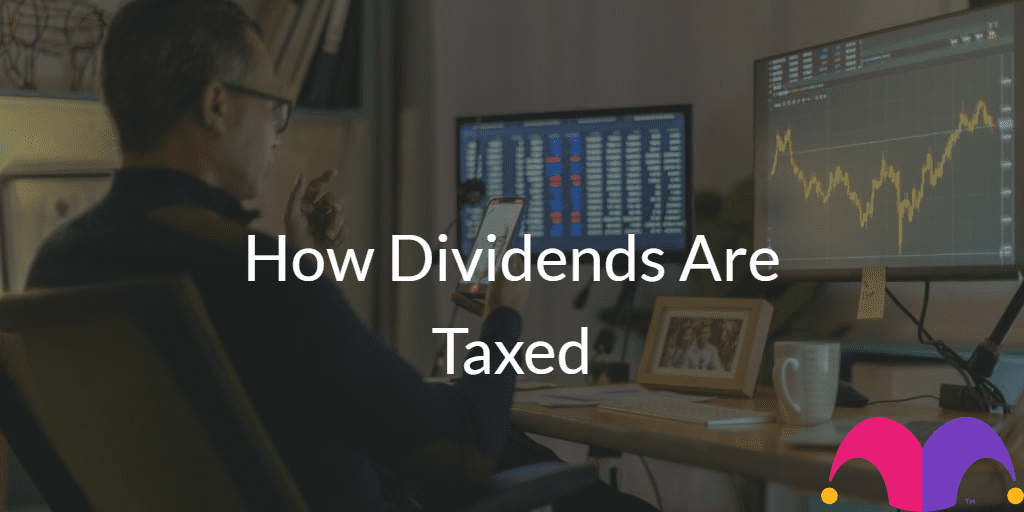There are two basic ways that share investors make money. The first is by generating capital gains from selling at a profit (buying low and selling high).
The second is by collecting dividends — but what are they, how do you earn them, and are they taxable? Read on to find out.
What are dividends?
Dividends are cash distributions paid by companies to shareholders. Think of them as regular cash rewards for owning shares (sometimes, they get paid in shares, but this is unusual).
Some UK-listed companies don’t pay dividends. That’s because some businesses don’t generate big enough profits to return cash to shareholders, and some companies prefer to retain and reinvest profits into future growth.
However, the majority of large UK-listed companies pay dividends. Indeed, all but about a dozen members of the blue-chip FTSE 100 index do.
Typically, companies pay these cash distributions half-yearly (as interim and final payments) or quarterly. Once paid into your account, this cash cannot be clawed back or reclaimed.
It’s important to remember, however, that dividends are not guaranteed: during 2020’s Covid-19 crisis, many major firms cut or cancelled their payouts.
How much are dividends?
The amount depends on the company. It is usually decided by the board of directors. It must then be approved by shareholders before it is announced.
If you are a shareholder, the amount you receive will be proportional to the number of shares you own. They are usually expressed in terms of pence per share.
So, if the dividend is 10p per share and you own 10,000 shares, the total payment will be £1,000.
[KevelPitch adtype=4578]
The payment mechanics
Three things happen when a dividend is approved.
- The board of directors must agree to the payment, usually expressed in pence per share.
- The board (working with its broker) sets an ‘ex-dividend date’. Only shareholders owning the shares before this date will qualify for the next cash payout.
- The board agrees a payment date.
When are dividends paid?
The payment frequency varies depending on the company and is determined by the board of directors. It will be either quarterly or half-yearly.
If you want to know the time of year they are likely to be paid, a good indication will be the dates of previous payments.
If you are interested in a specific company, you will need to undertake some research if you want to find out about the previous dividend payments. This information can be found in news articles, and some share dealing websites include dividend information.
There are four key dates you need to bear in mind:
-
Declaration date – This is the date when the dividend is announced. The board will issue information on the amount (pence per share), record date, and payment date.
-
Record date – You need to be registered as a shareholder in the company records on or before this date. Anyone registered after this date will not receive that payment.
-
Ex-dividend date – This is typically three days after the record date. If you purchase a share on or after the ex-dividend date, you will not be entitled to that payment. This date is determined by the stock exchange.
-
Payment date – This is the date on which they will be paid.
How are dividends paid?
When purchasing the shares, you usually let the account manager know how you want them paid to you.
Dividends are normally paid into the brokerage account used to buy the shares in the first place.
You can also choose to have the cash paid into your bank account or you can choose to reinvest them.
If you select to reinvest, dividends will be paid into your share dealing account and automatically used to purchase more shares of the same company.
What to do with my dividend payments?
You can spend dividends how you like, just as with other cash receipts. But many big companies allow shareholders to immediately reinvest dividends back into new shares, often at low cost.
So-called DRIPs (Dividend Re-Investment Plans) are common among major listed companies. In retirement, you may use this cash as extra passive income to support yourself. Before then, if you don’t need additional income, you can reinvest it into more shares. Over time, this reinvestment creates a ‘snowball’ effect that can greatly enlarge shareholdings.
Are dividends taxable?
Dividends paid inside tax-free vehicles such as pensions and ISAs are not taxable.
But others may or may not attract UK tax — it all depends on an individual’s tax situation.
In the tax year 22/23, you can earn dividends of up to £2,000 tax-free. Any earned above the £2,000 allowance will be subjected to tax depending on your tax band.
-
Basic rate taxpayers pay 8.75%
-
Higher rate taxpayers pay 33.75%
-
Additional rate taxpayers pay 39.35%
Further information on the tax on dividends is available on the gov.uk website.
Take home
Stocks that pay out large dividends are an attractive proposition. However, before investigating any single investment strategy it is a good idea to do some research first.
Payments can change and stop altogether depending on the economic climate. As a result, it’s a good idea to review your investments on a regular basis.
[KevelPitch adtype=151]
